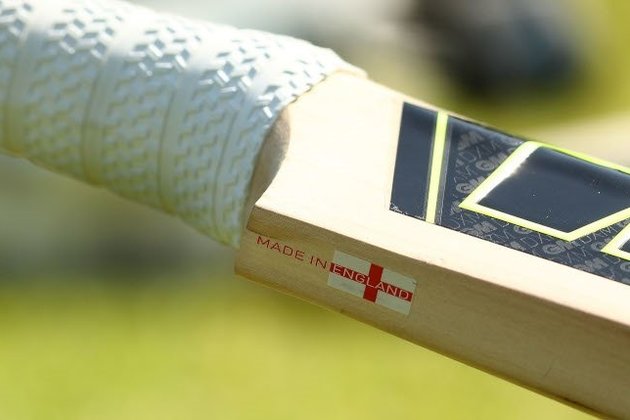
History was made on Sunday in a quiet corner of Birmingham, central England, as the world’s first match was played between two LGBTQ+ cricket teams.
Hosts Birmingham Unicorns were founded in March and contested just their second fixture against London-based Graces Cricket Club — England’s only other inclusive side.
The players received commemorative caps and posed for a group photo, while spectators enjoyed picnics and chilled drinks on a balmy afternoon.
“It’s more than just a game — it’s a statement,” Graces captain Stuart Anthony, 43, told AFP.
“If you’re into cricket, there’s a place for you. It doesn’t matter if you’re different — we have a home.”
Unicorns skipper Lachlan Smith, 45, added: “It’s a celebration of inclusion, demonstrating that LGBTQ people can have a place in cricket.
“There are lots of LGBTQ players who aren’t out in their clubs and wanted to play with us because that appeals to them.”
Smith initially sought advice from Graces about founding an inclusive team and both realised that playing each other would be a historic opportunity.
Governing body the England and Wales Cricket Board (ECB) and county team Warwickshire have supported them, as coronavirus restrictions are relaxed, allowing the match to go ahead.
Australia-born Smith grew up with cricket but later questioned its compatibility with his sexual orientation.
After 15 years away from the game, he needed two years to feel able to come out at his current club, while finding an LGBTQ-inclusive team in 2009 rekindled Anthony’s love for cricket after he became disenchanted.
“You aren’t going to be forever pilloried and feel bad. People will help on that journey through this sport we share and love,” Anthony said.
“There’s space for everybody to be themselves. That safe space is marvellous — we learn from it and share along the way.”
The ECB has supported the LGBTQ community in recent years through the Rainbow Laces and Rainbow Stumps campaigns.
Yet few professional cricketers have come out and other sports like football and rugby have arguably done more to promote LGBTQ visibility.
Graces became England’s first LGBTQ+ team in 1996 but it has taken 25 years for a second to come to the wicket — and arrange Sunday’s fixture at Weoley Hill Cricket Club.
Smith thinks a lack of role models and the expenses involved in cricket explain the lag and suggests inclusivity charters at recreational level could solve the problem.
“There’s got to be space for more inclusive clubs. It shouldn’t have taken 25 years,” he said.
“I don’t think cricket has taken seriously the whole idea of inclusivity around sexuality until the last three to five years — we shouldn’t be complacent.”
Anthony believes cricket has “a long way to go” to become more inclusive but thinks a younger generation will be more accepting of LGBTQ+ players.
National LGBT charity Stonewall welcomed the ECB’s support for inclusion but stressed that wider attitudes needed to change to achieve equality.
Director of programmes Liz Ward said: “Initiatives like this game bring us closer to the day where everyone, from players to fans, are able to be themselves on and off the pitch.
“Tackling anti-LGBT+ attitudes and behaviours cannot and must not rest on the shoulders of LGBT+ athletes alone.”
England Test captain Joe Root received praise after telling West Indies bowler Shannon Gabriel “there’s nothing wrong with being gay”, following Gabriel’s alleged homophobic remarks during a match in 2019.
“The more players, fans, clubs and organisations stand up for equality, the sooner we bat discrimination out and make sport everyone’s game,” Ward added.
ECB chief executive Tom Harrison praised both teams’ efforts as English cricket tries to become more accessible.
“I’m really excited about the game of cricket coming together to break down barriers and become more inclusive,” he said.

